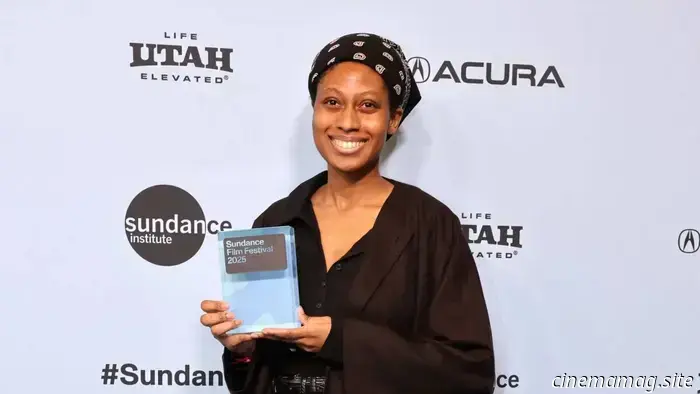
“There are numerous Black stories that have not been adequately examined”: Seeds director Brittany Shyne discusses her Sundance-winning debut.
Director Brittany Shyne did not grow up on a farm, but her family's agricultural background motivated her to create a film centered on Black land ownership and generational farmers in the Southern United States. She began work on what would become *Seeds*, which won the best documentary award at Sundance this year, while still in graduate school at Northwestern University. This MFA thesis topic evolved into a project that she documented for over nine years and 400 hours of footage.
The outcome is a uniquely personal depiction of modern agricultural life, predominantly highlighting the Williams family, who have owned their land since 1883, and Willie Head Jr., who serves both as a great-grandfather wanting his family to stay on the land and as an activist advocating for USDA bank loans for Black farmers. While addressing broader socio-political themes, Shyne maintains a captivatingly intimate focus on familial connections and the weight of history.
Earlier this year, we met at the Thessaloniki Documentary Festival, where *Seeds* premiered internationally, and Shyne participated in a post-midnight Q&A session. We connected the following morning and took a seat outside to enjoy the sunshine while discussing family legacy and the artists who influenced her. Ahead of the film's New York City premiere this Friday at the 2025 Margaret Mead Film Festival, here is our conversation.
**The Film Stage:** Congratulations on your award at Sundance. How was that experience for you as a first-time filmmaker?
**Brittany Shyne:** It was fantastic. Intense. A whirlwind. But also very gratifying to finally share it with the world.
How did you approach Willie Head Jr. for the film? What was that initial meeting like?
His narrative came to light much later than that of the Williams family, the oldest farming family depicted in the film. With some family members passing on, the story was shifting, and I realized I needed additional elements. I came across a small article about Willie highlighting his activism, which was very compelling. So, I reached out to him in 2021, knowing he lived about 25 minutes from the Williams family. I drove out there while I was in Thomasville. He was very open to me making a film because he had spoken to journalists before—though I'm not a journalist, he understood my intentions.
He wanted his story to be heard.
Absolutely, he wanted his story to be shared. He has been an incredible collaborator on this film.
He contributes so much to it. The film contains no text, yet it conveys so much through how Willie discusses the situation.
That was crucial for me. I never intended for the film to be didactic or formulaic; I genuinely wanted to illustrate this space, the lives of different farmers, and the everyday moments. Willie brings a wealth of knowledge and history, and he provides context beautifully without needing formal interviews.
So, the more overtly political aspect of *Seeds* developed later during filming?
Definitely with Willie’s story arc, especially his activism and connections with other Black farmers in the region. One of the last significant shoots I had was in 2023 when they went to the White House. While it became an important moment in the film, I never started out thinking we would include that element. It naturally evolved with his storyline as they fought for the USDA settlement.
Was it tempting to make that political struggle the central focus of the film? Another filmmaker might have concluded with the trip to Washington, for example.
Absolutely, but to me, it's just another chapter of their lives. As I mentioned last night, they’ve been engaged in this battle for 30 years. It’s been a significant challenge, but my film’s arc isn’t centered solely on these political issues; it's about what they aim to sustain in their everyday lives. The film is about maintaining legacy, emphasizing the full humanity of Black farmers, showcasing not just their struggles but the love and tenderness present throughout. That was the cornerstone of what I wanted to highlight.
How did you first approach the Williams family? Did you have a connection there?
Actually, it was my mother who helped. She knew I wanted to create a film about Black farmers and found an article online about the Williams family. We reached out to the family matriarch, Belle, who, while not a farmer herself, grew up on the land. I was able to visit Thomasville after Belle invited me, marking my initial introduction to their lives.
Were the earlier scenes in the film among the first you shot? The intimacy and closeness, especially in the backseat of the car, are striking.
No, the funeral scene took place a few years into the process. However, moments like the optometrist visit were filmed early. Some cotton scenes also came from that initial phase.
The intimacy in that moment was astonishing. Was it essential for you to establish that sense of closeness early for the audience?
Yes, and cars are a significant motif throughout the film. I knew we'd have many car scenes. Starting


Other articles
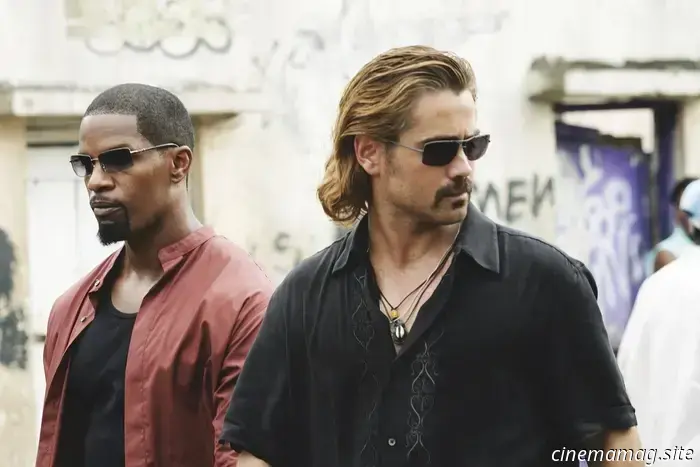 Joseph Kosinski is set to helm a new Miami Vice film.
Joseph Kosinski, the director of Top Gun: Maverick, is set to helm a new Miami Vice film for Universal Pictures. As reported by Deadline, the F1 director will travel to Florida to oversee a screenplay by Dan Gilroy, the writer and director of Nightcrawler. The original Miami Vice was a sleek, highly stylistic crime drama conceived by Anthony Yerkovich and produced by Michael Mann for […]
Joseph Kosinski is set to helm a new Miami Vice film.
Joseph Kosinski, the director of Top Gun: Maverick, is set to helm a new Miami Vice film for Universal Pictures. As reported by Deadline, the F1 director will travel to Florida to oversee a screenplay by Dan Gilroy, the writer and director of Nightcrawler. The original Miami Vice was a sleek, highly stylistic crime drama conceived by Anthony Yerkovich and produced by Michael Mann for […]
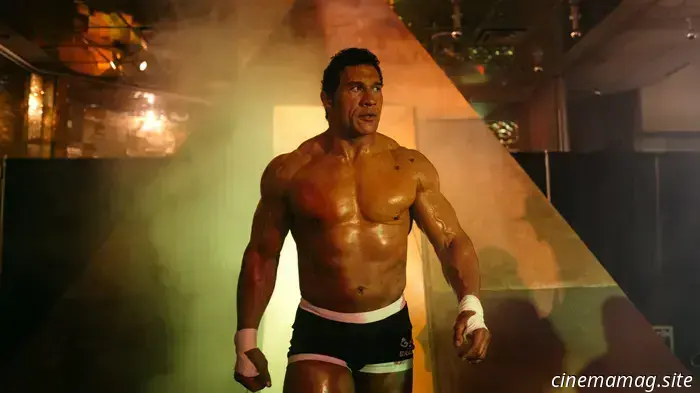 Dwayne Johnson portrays Mark Kerr in the trailer for The Smashing Machine.
A24 has released the initial trailer and poster for The Smashing Machine, a biographical sports drama written and directed by Benny Safdie. In this film, Dwayne Johnson transitions from wrestling to the octagon, portraying UFC fighter Mark Kerr. Take a look at them below… Alongside Dwayne Johnson, the cast includes Emily Blunt as Dawn Staples, Ryan […]
Dwayne Johnson portrays Mark Kerr in the trailer for The Smashing Machine.
A24 has released the initial trailer and poster for The Smashing Machine, a biographical sports drama written and directed by Benny Safdie. In this film, Dwayne Johnson transitions from wrestling to the octagon, portraying UFC fighter Mark Kerr. Take a look at them below… Alongside Dwayne Johnson, the cast includes Emily Blunt as Dawn Staples, Ryan […]
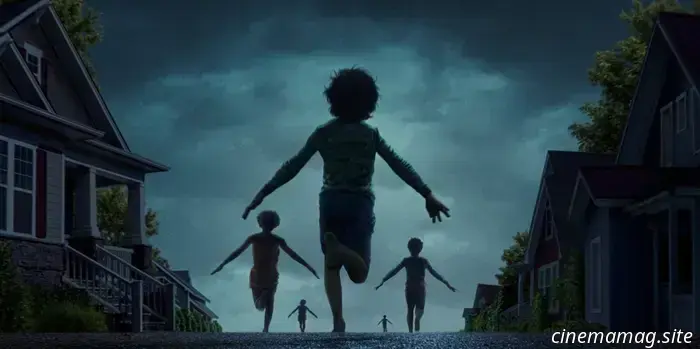 Zach Cregger's Weapons unveils a terrifying trailer.
Are any of us prepared for the new horror genius Zach Cregger has in store for us? After his 2022 film Barbarian, the filmmaker returns with what appears to be another chilling journey into his disturbing imagination. Weapons is slated to be released this coming summer, providing us with just enough time to prepare […]
Zach Cregger's Weapons unveils a terrifying trailer.
Are any of us prepared for the new horror genius Zach Cregger has in store for us? After his 2022 film Barbarian, the filmmaker returns with what appears to be another chilling journey into his disturbing imagination. Weapons is slated to be released this coming summer, providing us with just enough time to prepare […]
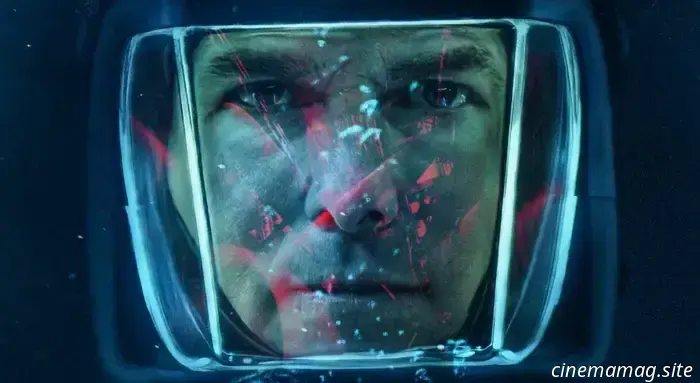 Mission: Impossible – The Final Reckoning unveils new posters and behind-the-scenes featurettes.
With less than a month remaining until the launch of Mission: Impossible – The Final Reckoning and tickets now available for purchase, four new promotional posters tailored for cinemas have been released online for the eighth installment of the spy action series. Additionally, two featurettes have been shared, offering another glimpse into the film’s remarkable stunts and […]
Mission: Impossible – The Final Reckoning unveils new posters and behind-the-scenes featurettes.
With less than a month remaining until the launch of Mission: Impossible – The Final Reckoning and tickets now available for purchase, four new promotional posters tailored for cinemas have been released online for the eighth installment of the spy action series. Additionally, two featurettes have been shared, offering another glimpse into the film’s remarkable stunts and […]
-4K-Ultra-HD-Review.jpg) The Outlaw Josey Wales (1976) - 4K Ultra HD Evaluation
The Outlaw Josey Wales, released in 1976, was directed by Clint Eastwood and features a cast that includes Clint Eastwood, Sondra Locke, John Vernon, Bill McKinney, Chief Dan George, Will Sampson, Royal Dano, Paula Trueman, John Russell, and Sam Bottoms. SYNOPSIS: A farmer, whose family is slaughtered by Union soldiers during the Civil War, embarks on a quest for vengeance, gathering a handful of misfits along the way.
The Outlaw Josey Wales (1976) - 4K Ultra HD Evaluation
The Outlaw Josey Wales, released in 1976, was directed by Clint Eastwood and features a cast that includes Clint Eastwood, Sondra Locke, John Vernon, Bill McKinney, Chief Dan George, Will Sampson, Royal Dano, Paula Trueman, John Russell, and Sam Bottoms. SYNOPSIS: A farmer, whose family is slaughtered by Union soldiers during the Civil War, embarks on a quest for vengeance, gathering a handful of misfits along the way.
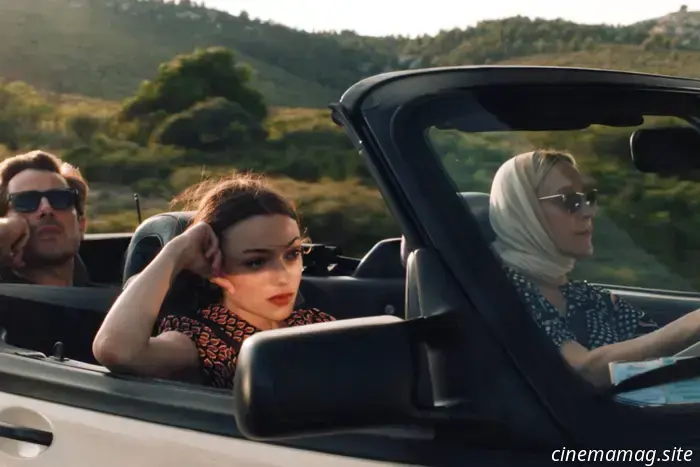 Bonjour Tristesse Review: The Remake Takes a Different Approach Compared to Otto Preminger’s Classic.
Note: This review was first published during our 2024 TIFF coverage. Bonjour Tristesse is set to premiere in theaters on May 2. There was a bit of apprehension approaching Bonjour Tristesse. By positioning itself as yet another “adaptation” of Françoise Sagan’s work rather than a remake of Otto Preminger’s cinematic masterpiece, there remains some uncertainty regarding the audacity that
Bonjour Tristesse Review: The Remake Takes a Different Approach Compared to Otto Preminger’s Classic.
Note: This review was first published during our 2024 TIFF coverage. Bonjour Tristesse is set to premiere in theaters on May 2. There was a bit of apprehension approaching Bonjour Tristesse. By positioning itself as yet another “adaptation” of Françoise Sagan’s work rather than a remake of Otto Preminger’s cinematic masterpiece, there remains some uncertainty regarding the audacity that
“There are numerous Black stories that have not been adequately examined”: Seeds director Brittany Shyne discusses her Sundance-winning debut.
Director Brittany Shyne may not have been raised on a farm, but her family's background in agricultural work motivated her to create a film focusing on Black land ownership and generational farmers in the Southern United States. She began developing the project that ultimately became Seeds, which received the award for best documentary at Sundance this year, while she was still in graduate school.
